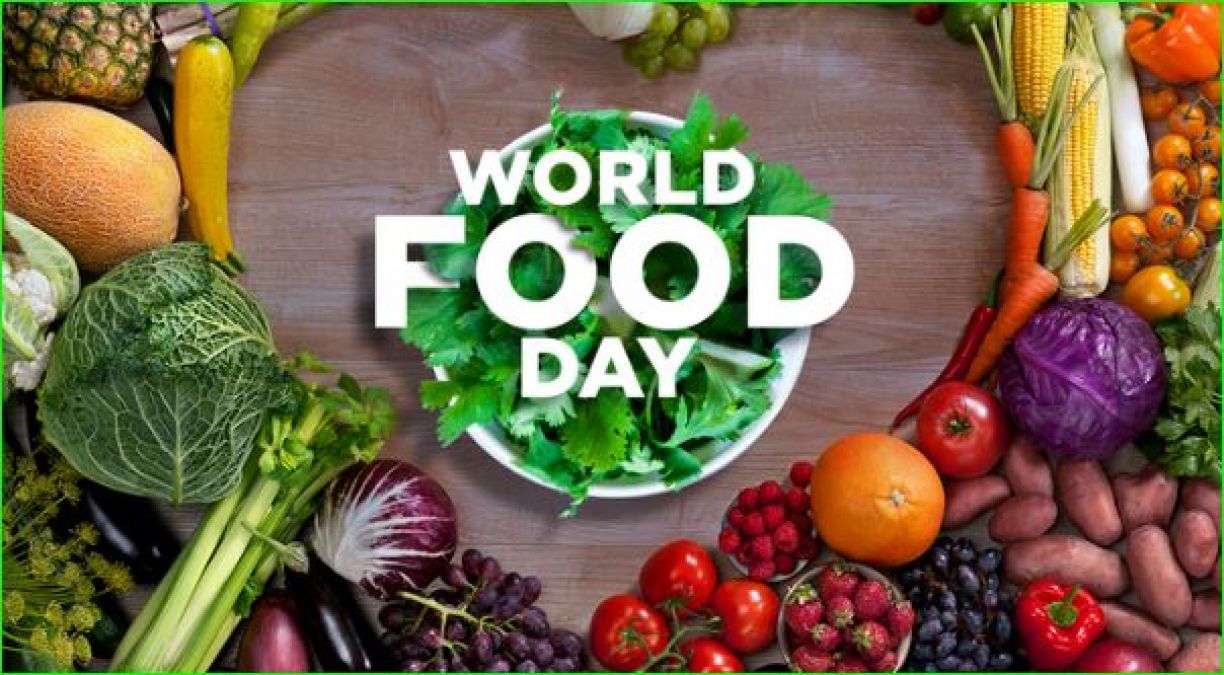World Food Day 2022
“There are people in the world so hungry, that God cannot appear to them except in the form of bread” —Mahatma Gandhi Sunday October 16 was World Food Day, an annual observance highlighting the precarious situation of millions around the world who cannot afford a healthy meal and the importance of regular access to nutritious […]

“There are people in the world so hungry, that God cannot appear to them except in the form of bread”
—Mahatma Gandhi
Sunday October 16 was World Food Day, an annual observance highlighting the precarious situation of millions around the world who cannot afford a healthy meal and the importance of regular access to nutritious food. It also commemorates the founding, in 1945, of the Food and Agriculture Organisation of the United Nations (FAO).
This year’s theme is `Leaving No One Behind’ but my recent visits to some IDP camps in the North East rendered it a metaphorical assumption and saddened me when I realised that “many people are still left behind”. Thousands of people in these camps lack access to nutritious food and a large number of them go to bed hungry. Sadly, the most affected of the aforementioned are children and infants.
- Gunmen invade Kwara community, abduct 2
- NIGERIA DAILY:The Real Losers In the Eight Months Of ASUU Strike
In the face of a looming global food crisis, several farmlands are left unattended to no thanks to insurgency and conflict. The agriculture sector is faced with unprecedented skirmishes and food insecurity more glaring. Most agriculture interventions are not value-addition inclined and the school feeding programme has turned out to be a façade coupled with the fact that the change in climatic conditions has had its toll on farmers who are majorly rural dwellers. Soaring prices of food have made it unaffordable for the majority of the populace and high inflation facing the economy has made the situation worrisome.
Then a question comes to mind: how do we eradicate poverty (SDG 1), or end hunger and malnutrition (SDG 2) with all the aforementioned issues? The Sustainable Development Goals (SDGs) were to ensure no one is left behind. With the disturbingly recent flooding in several communities across the country, more worrisome is the fact Benue and Kogi states, which produce most of the country’s food, are adversely affected.
A large number of Nigerians are already behind in their bid to access healthy and nutritious meals. The flooded food baskets of the nation might compound the woes of having access to healthy and nutritious meals. Winston Churchill once said that ‘healthy citizens are the greatest asset any country can have.’ I fear the country’s assets may pitiably depreciate should people continue to face these food and feeding challenges.
As numerous reports have captured it, the ongoing Russo-Ukrainian war has largely contributed to the global food crisis. While Al-Jazeera reported, “Russia’s war in Ukraine is preventing grain from leaving the “breadbasket of the world” and making food more expensive across the globe, threatening to worsen shortages, hunger, and political instability in developing countries,” The Economics Observatory affirmed that “Russia’s invasion of Ukraine is raising food prices across the world. Developing and emerging economies are being hit hardest due to their reliance on the region for fuel and grain imports. Price hikes in these countries could spur further political turbulence and even violence.”
The World Food Programme estimates that 690 million people across the world are hungry and 8.9 per cent of the world’s population is yet to come out of the effect of the COVID-19 pandemic. It is indeed an interesting moment in international cooperation and solidarity.
Leaning on the conclusion of the president, Csaba Kőrösi, of the 77th session of the UN General Assembly (UNGA), who has said, “… we will push for “Solutions through Solidarity, Sustainability, and Science to achieve the transformation necessary for better outcomes” amidst this global security food crisis, collective solidarity is urgently required to mitigate the deteriorating situations and issues affecting global food security.
State governments in the North East must develop and integrate strategies that tackle hunger and malnutrition in the IDP camps. More efforts should be focused on supporting smallholder farmers and improving existing agrifood systems across the region. While the federal government initiates support systems for small-scale farmers.
FAO has reported that it produces a third of the world’s food systems, equally representing 80 per cent of food producers across the globe. They are the foundation of food stability for human sustenance.
John Whedon humourises that humour keeps us alive. We should not forget the food because we can go a week or more without laughing. We all should be involved in the food chain as inferred by Mike Johanns. In any way we can we should contribute towards food security, food is very important to humanity likewise air and humour.
Olasoji Fagbola wrote via [email protected]
